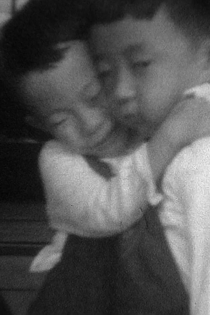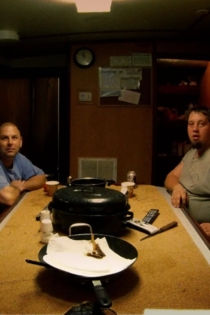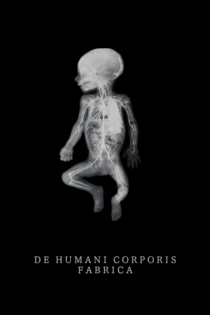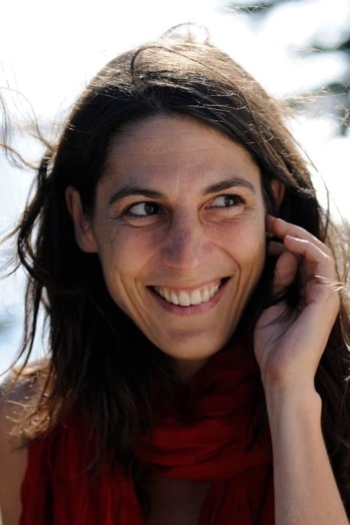
Véréna Paravel
2021Paravel was born in Neuchâtel, Switzerland, to French parents, and grew up in Algeria, Portugal, Togo, Côte d'Ivoire, the Soviet Union, and France. She taught at the Université de Toulouse, and received her PhD in Anthropology and Communication Sciences from the Université de Toulouse II. She later worked with Bruno Latour at the École Nationale Supérieure des Mines de Paris. In 2004, she moved to the United States, where she had a postdoctoral fellowship at Columbia University.
Since 2006, Verena Paravel has worked with Lucien Castaing-Taylor at the Sensory Ethnography Lab at Harvard University. She has been a Lecturer in the Department of Anthropology at Harvard University, and in 2012-13 she was the Frieda L. Miller Fellow in Film, Video, Sound, and New Media at the Film Study Center and the Radcliffe Institute for Advanced Study. She is also on the master class faculty at the Ecole des Arts Politiques at Sciences Po in Paris. In 2013, she and Castaing-Taylor jointly received the True Vision Award from the True/False Film Festival. Her works in film and video have screened at Berlin, Locarno, New York, Toronto, and other film festivals. They include 7 Queens (2008), Interface Series (2008-10), Foreign Parts (2010), and Leviathan (with Castaing-Taylor, 2012).
Les Enfants des autres
Rebecca Zlotowski
Roschdy Zem, Chiara Mastroianni
Rachel loves her life, her students, her friends, her ex, her guitar lessons. When she falls in love with Ali, she grows close to his 4-year-old daughter, Leila. She tucks her in, looks after her, and loves her like a mother... which she isn’t. Not yet. Rachel is 40. The desire for a family of her own is growing stronger, and the clock is ticking. Is it too late?
Other People's Children

Foreign Parts
J.P. Sniadecki, Véréna Paravel
A portrayal of a hidden enclave of auto shops and junkyards fated for demolition in the shadow of a new baseball stadium in Queens. The film observes this vibrant community of immigrants – where wrecks, refuse, and recycling form a thriving commerce – as it struggles for daily survival and contests New York City's development scheme.
Foreign Parts

Leviathan
Lucien Castaing-Taylor, Véréna Paravel
Declan Conneely, Johnny Gatcombe
Set aboard a hulking fishing vessel as it navigates the treacherous waves off the New England coast. The very waters that once inspired Moby Dick, the film captures the harsh, unforgiving world of the fishermen in starkly haunting, yet beautiful detail.
Leviathan
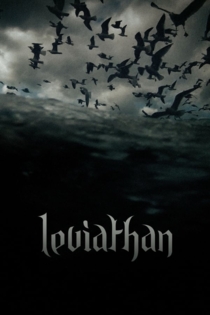
Caniba
Lucien Castaing-Taylor, Véréna Paravel
Issei Sagawa, Jun Sagawa
Caniba is a fresco about flesh and desire. It reflects on the discomfiting significance of cannibalism in human existence through the prism of one Japanese man, Issei Sagawa, and his mysterious relationship with his brother, Jun Sagawa.
Caniba

Ah Humanity!
Lucien Castaing-Taylor, Ernst Karel
“Ah humanity! reflects on the fragility and folly of humanity in the age of the Anthropocene. Taking the 3/11/11 disaster of Fukushima as its point of departure, it evokes an apocalyptic vision of modernity, and our predilection for historical amnesia and futuristic flights of fancy. Shot on a telephone through a handheld telescope, at once close to and far from its subject, the audio composition combines excerpts from Japanese genbaku film soundtracks, audio recordings from scientific seismic laboratories, and location sound.”—Ernst Karel, Verena Paravel & Lucien Castaing-Taylor
Ah Humanity!
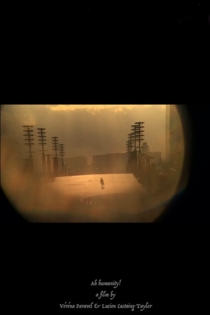
Commensal
Lucien Castaing-Taylor, Véréna Paravel
Issei Sagawa
A two-channel installation utilizing both digital video and 16mm film, Commensal focuses on the controversial figure of Issei Sagawa, who gained notoriety in 1981 when, as a graduate student in Paris, he murdered a fellow student and engaged in acts of cannibalism. After his release from a mental institution, Sagawa returned to Japan, and later appeared in innumerable documentaries and sexploitation films. In contrast to earlier journalistic documentaries on Sagawa, the film suspends moral judgment and explores a realm that eludes classification as either “documentary” or “pure fiction,” to instead chart the ambiguous territory between crime, fantasy, and social realities, between an individual and the economy of his public persona.
Commensal
